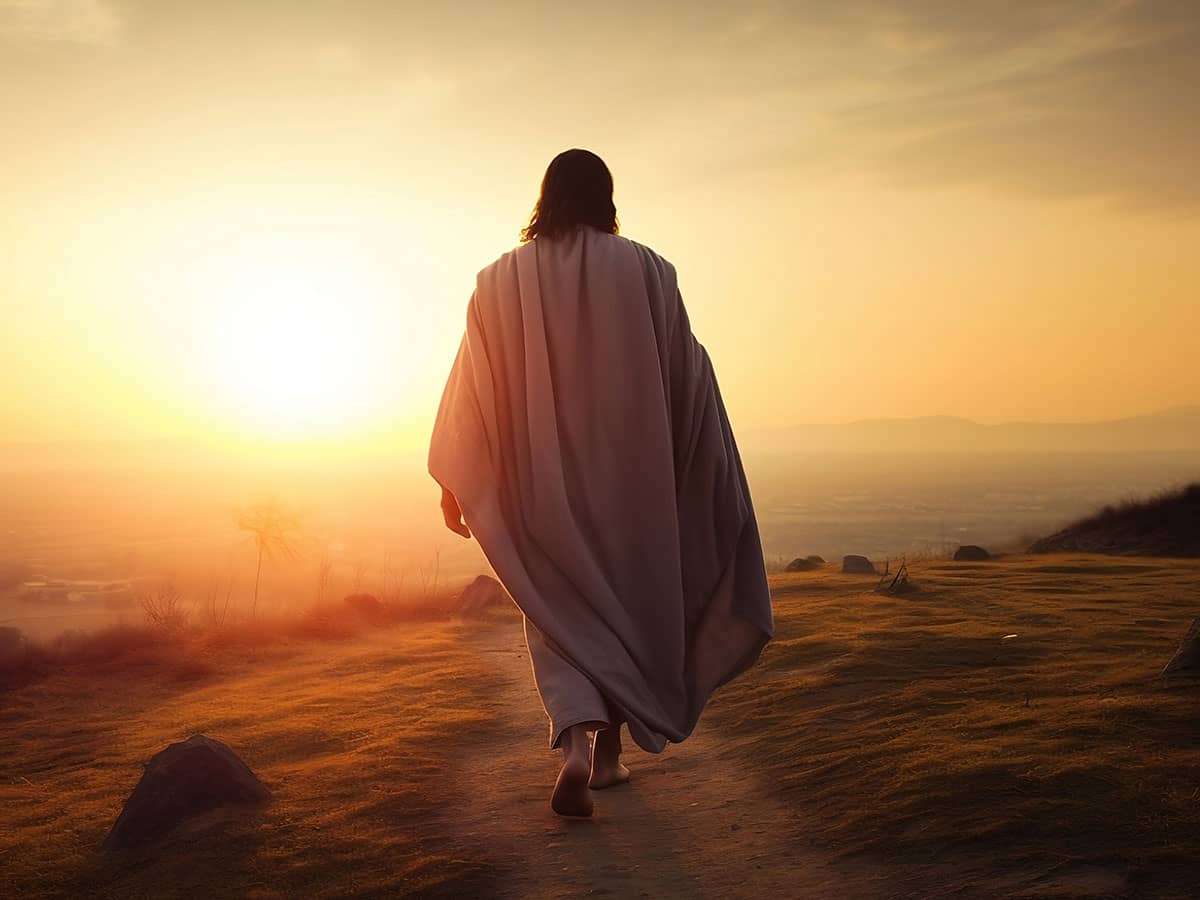
The iconic swearing-in ceremony and inauguration. Images are etched into our minds of new presidents laying their hands on the Bible and taking the oath of office. But where does faith come into play here? Every president since George Washington has mentioned God in one form or another in a speech.
If the U.S. Constitution unquestionably prohibits any discrimination based on religion when a president takes office, why do all of them, mention God? In Article VI of the U.S. Constitution, it reads: "no religious test shall ever be required as a qualification to any office or public trust under the United States." Faith has always been a bedrock in America, despite it becoming more of a secular nation. There are prayer breakfasts, "God Bless America" is used after many presidential speeches and religious leaders like Rev. Billy Graham famously has given benedictions for leaders. These activities are common practice.
Pew Research author Jeff Diamant pointed out. Chester A. Arthur was the first president on record to have uttered “so help me God” at the end of the oath. However, "a not-quite-raging debate lives in the blogosphere over whether the phrase was used at George Washington’s inauguration, with various proponents claiming he said it, may have said it or did not say it," Diamant said. No matter where its origins, God has been at the nucleus of most presidential speeches and inaugurations because most voters care about their elected official's faith. While some presidents felt more trapped regarding religion, some were vocal about their faith. Let's take a look at 8 presidents and their usage of faith.
George Washington
George Washington was from mainline Protestant Christianity, but after he was married in the Episcopal Church, he rarely attended services. Many believed that he accepted Jesus Christ as his Savior. Yet, there is no record of this in his journals. After the Revolutionary War, Washington was seemingly skeptical about religion because of its bigotry. As a leader of a new nation and now a diverse nation, he was careful in his speeches as he wanted to preserve democracy. "Whatever may be conceded to the influence of refined education on minds of peculiar structure, reason and experience both forbid us to expect that national morality can prevail in exclusion of religious principle."Andrew Jackson
Andrew Jackson followed the same beliefs as Washington did. During his time at the White House, there was a religious calm in the country and he didn't want to disrupt this by forcing people to fast or to pray. As a matter of fact, he did not issue a proclamation of fasting and prayer for the White House. He later wrote: "I could not do otherwise without transcending the limits prescribed by the Constitution for the President, without feeling that I might in some degree disturb the security which religion now enjoys in this country." Yet, Jackson knew that most Americans did care about the faith of their leaders, so he was able to walk that ambiguous line.Thomas Jefferson
Thomas Jefferson was one of the Founders of America and one of the principle architects of the Declaration of Independence. Jefferson pretty much gave orthodox Christianity up at a young age, although he believed in an impersonal Creator of the Universe. He attacked Calvinism, predestination, the immaculate conception and other areas of religion. "Jefferson famously edited the New Testament by removing references to the miracles and leaving in Jesus’ teachings," according to Pew. Jefferson mentioned God in his speeches but never endorsed any religion. He said that millions of people died at the hands of Christianity and "yet we have not advanced one inch towards uniformity."James Garfield
Unlike Washington, Jackson and Jefferson--James Garfield was considered the "preacher president" and he was more verbose regarding his faith than his predecessors. "Today I was buried with Christ in baptism and arose to walk in the newness of life," he wrote after his baptism. Garfield preached until he became a member of Congress in 1863 and was open about his faith when elected to the White House.John F. Kennedy
It was controversial to elect a Roman Catholic to the White House and John F. Kennedy remains the country's only Catholic president. He said that he was not looking to be America's first Catholic president and used it as part of his message to voters. "Any voter, Catholic or otherwise, who feels another candidate would be a superior President should support that candidate. I do not want any vote cast for me for such illogical reasons."George W. Bush
George W. Bush said he was a candidate who would restore Christian values to the nation. He was probably the most open regarding his faith in the 21st century as acting president. "When you turn your heart and life over to Christ, when you accept Christ as a savior, it changes your heart and changes your life. And that's what happened to me." Bush came under fire by opponents as favoring Christianity above other religions.Barack Obama
Raised in a secular household, Barack Obama found God in his 20s. He discounted that people should leave religion for the sake of politics. and stood on this message during his presidential campaigns in 2008 and in 2012. "Secularists are wrong when they ask believers to leave their religion at the door before entering into the public square," he said. He explained that we are motivated by our faith and should be able to inject personal morality into public policy. "Our law is by definition a codification of morality, much of it grounded in the Judeo-Christian tradition."Donald Trump
When Donald J. Trump was sworn into office he became the 45th President of the United States and the 9th commander-in-chief who was affiliated with the Presbyterian Church. "I'm a Protestant, I'm a Presbyterian. And you know I've had a good relationship with the church over the years. I think religion is a wonderful thing. I think my religion is a wonderful religion.” Unlike Bush, Trump is more moderate in his faith.The Pew Research Center found that half of all American adults believe it is important that presidents share their religious beliefs. They found that 40 percent of people believe faith is not shared enough and others who believed faith is shared too much (27 percent) at the Oval Office. Faith has survived at 1600 Pennsylvania Avenue for years, and it appears it will remain at the heart of any administration or president as long as the people command it. Is it a trap for presidents to play the game that they are people of faith? Perhaps. No one can deny that faith is a cornerstone of our nation and has become a tradition.

